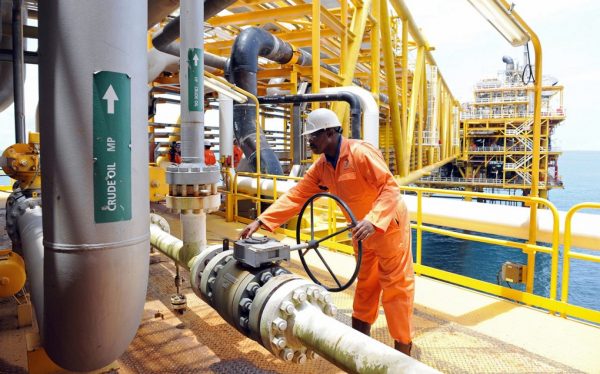Nigeria’s necessary energy transition to unlock prosperity

By Michael Oluwagbemi
Nigeria is a gas country that happens to have some oil. With 210.54 trillion cubic feet (TCF) of gas in the country that can last us up to 100 years, with another 600 TCF of unproven reserves estimate, our land is rich.
Aside from abundance in gas, we also have abundant sunlight and water reserves, after all we are a country named after a major river body and with over two third of our states named after one aquatic body or a term. Yet in the midst of plenty, like the proverbial dweller at the bank of the ocean that used spit to wash hands, we have failed to properly utilize these resources to uplift our population from the depths of energy poverty.
Relative to our neighbors, we are infinitely blessed. The custodian of 33% (one-third) of Africa’s proven gas reserves – one country out of fifty four (54), have no business being energy poor.
Nigeria’s energy poverty is one of the most severe in the world, and it shapes both daily life and long-term economic prospects. It’s not just about electricity, it cuts across cooking, heating, and industrial energy needs.
As of 2024, roughly 45–50% of Nigerians (about 95 million people) had no access to electricity. This is the largest electricity access gap of any single country in the world, according to the IEA and World Bank. Urban access is around 85%, but rural access is as low as 25–35%. Even those “connected” face blackouts for over 50% of the time. Average daily supply in many areas is 4–8 hours; off-grid diesel or petrol generators are often the main source of electricity. Businesses lose an estimated $25–30 billion annually to unreliable power and the inefficiencies of running on off grid back up generators.
About 70% of households rely on traditional biomass (firewood, charcoal, kerosene) for cooking. This leads to Indoor air pollution—linked to over 100,000 premature deaths annually in Nigeria. Deforestation and environmental degradation are also attendant impacts further worsening standards of living for the more than 25.34 million Nigerian farmers and rural dwellers that depend on vibrant ecosystem for their livelihood.
In the transport sector, which accounts for 14-17% of household spending, Over 90% of passenger and freight transport in Nigeria runs on petrol or diesel. Energy poverty, coupled with historical refinery underperformance, forces dependence on imported refined fuel that are expensive and unstable in pricing impacting transport and logistics cost, and cost of goods, food and services.
The impact is not limited to land transportation. Increasingly, air transport is becoming unaffordable to many, even as water transport that moves between 500,000 to 1,000,000 passengers per day across the nation’s inland waterways and coastal routes is becoming more dangerous as adulteration of fuel and overloading to manage skyrocketing costs have led to more accidents.
All these while, Nigeria is Africa’s largest holder of gas reserves (~208 TCF proven, ~600 TCF unproven) and a major crude oil producer. Yet domestic energy infrastructure—especially for power generation, transmission, and gas distribution—lags far behind. Large-scale gas flaring persists while households lack clean cooking gas.
From 2010 to 2020, annual gas flaring in Nigeria ranged from 7.83 to 17.5 billion cubic meters (Bcm), totaling 114.35 Bcm over the decade. That’s equivalent to around 13% of total gas production during that period. In 2021, Nigeria was ranked 7th among the top 10 gas-flaring countries, according to the World Bank’s Global Gas Flaring Tracker Report.
In 2023, Nigeria remained one of the top nine global gas-flaring countries, alongside Russia, Iran, Iraq, the United States, Venezuela, Algeria, Libya, and Mexico. Together, these nine nations were responsible for approximately 75% of all global gas flaring. In 2024, while Nigeria didn’t top the list in absolute volumes, it recorded the second-largest increase in flaring volume globally—indicating a concerning upward trend as crude oil production increase in response to economic incentives and growth.
All these point to the necessary of pursuing a deliberate “just” energy transition policy for Nigeria centered around GAS in transport, power, heating and industrial use to unleash and unlock opportunities including new ones in the nascent new digital economy like the use of stranded cheap gas sources cryptocurrency mining. After all, this is one product that can transform our industrial and agricultural landscape at once. Providing the energy and fuel for industrialization and feedstock for Urea and fertilizer.
On this page, I will be exploring these topics as a critical driver of Nigeria’s vision for the “decade of gas” and its use for transforming the economy, through the Presidential CNG (Compressed Natural Gas) Initiative. The topics we will explore, will be engaging .
•Engr. Michael Oluwagbemi, MNSE, PE,PMP is Program Director at Presidential CNG Initiative.
The post Nigeria’s necessary energy transition to unlock prosperity appeared first on Vanguard News.







